6 Tips on How to Choose A Water Softener

Shop Our Products
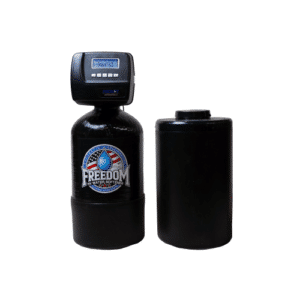
Freedom RV Water Softener System
Specifically for RV and fifth-wheel owners, this high-quality system guarantees your RV’s water is pure,
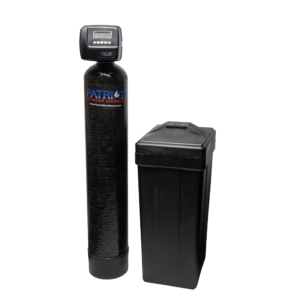
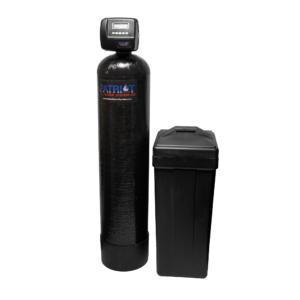
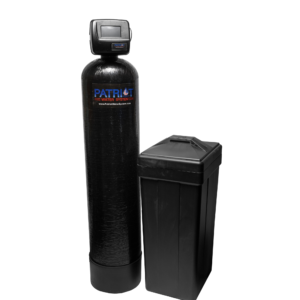
Hey there! If you’re asking how to choose a water softener but feel overwhelmed by the options, you’re not alone. Selecting the right system can seem like a daunting task, but we’re here to simplify it for you. In this guide, we’ll walk you through everything you need to consider, from household size and water usage to the specific water hardness issues in your area. Let’s get started!
Understanding Water Hardness
Before diving into the nitty-gritty, let’s cover the basics. Water hardness is caused by the presence of minerals like calcium and magnesium. The higher the concentration of these minerals, the harder your water. Hard water can lead to a variety of problems, including limescale buildup, reduced appliance efficiency, and dry skin and hair. Fortunately, water softeners offer several benefits that help protect you and your home from hard water.
Assessing Your Water Hardness Level
The first step in choosing a water softener is to determine the hardness of your water.
You can do this by:
- Testing Your Water: Purchase a water hardness test kit from a hardware store or online. This simple test will give you a reading in grains per gallon (GPG) or parts per million (PPM).
- Contacting Your Water Provider: Many local water utilities provide water quality reports that include hardness levels. Check their website or give them a call.
6 Things to Consider When You Choose a Water Softener
Now that you know your water hardness level, let’s look at the key factors to consider when selecting a water softener:
1. Household Size and Water Usage
One of the most important factors is the size of your household and your daily water usage. Water softeners are rated by the amount of hardness they can remove, typically measured in grains. Here’s a quick guide:
- Small Households (1-2 people): A system that can handle 24,000-32,000 grains is usually sufficient.
- Medium Households (3-4 people): Look for a system rated for 32,000-40,000 grains.
- Large Households (5+ people): Consider a system with a capacity of 40,000 grains or more.
2. Regeneration Method
Water softeners use two main regeneration methods: timer-based and demand-initiated.
Timer-Based Regeneration: This type regenerates on a set schedule, regardless of water usage. While more predictable, it can be less efficient and waste water if not timed correctly.
Demand-Initiated Regeneration (DIR): This method regenerates based on actual water usage, making it more efficient and economical in the long run.
3. Salt-Based vs. Salt-Free Systems
Traditional water softeners use salt to remove hardness minerals, but there are also salt-free alternatives so it is important for you to consider the differences in salt vs non salt water softeners.
Salt-Based Systems: Effective at removing hardness but require regular maintenance and salt refills.
Salt-Free Systems: Use alternative methods like template-assisted crystallization (TAC) to prevent scale buildup. These systems are low-maintenance but may not be as effective in areas with very hard water.
Reverse Osmosis Systems are another salt-free system that may be more suited to your needs.
4. City Water vs. Well Water: Special Considerations
Depending on your water source—city (municipal) water or well water—there are different factors to keep in mind.
City Water
City water is treated by your local municipality and is generally consistent in quality. However, it may still contain hardness minerals and chlorine used for disinfection. A standard water softener typically suffices to address these issues.
Well Water
Well water comes directly from underground sources and isn’t treated by a municipality, which means it can contain higher levels of minerals like iron and magnesium, as well as contaminants like sand, silt, and hydrogen sulfide. These can cause stains, odors, and even damage your plumbing and appliances.
If your home relies on well water, you may need a specialized water softener designed to handle these unique challenges. Salt-based systems are often recommended because they effectively remove high levels of hardness and iron.
Interested in learning more? Check out our detailed guide on Choosing the Best Water Softener for Well Water to find the perfect system for your well water needs.
5. Installation and Maintenance
Consider the installation and maintenance requirements of the water softener. Some systems are easier to install and maintain than others. If you’re handy, you might be able to install it yourself; otherwise, professional installation is a good idea.
6. Additional Features
Look for additional features that can enhance the performance and convenience of your water softener:
- Built-In Water Filter: Some units come with a built-in filter to remove additional contaminants.
- Smart Technology: Advanced models offer smart technology features, allowing you to monitor and control the system remotely via a smartphone app.
- Warranty and Support: A good warranty and responsive customer support can provide peace of mind.
Still not certain? Learn if a water softener is worth it for you!
Conclusion
Choosing the right water softener for your home doesn’t have to be complicated. By considering your household size, water usage, local water hardness, and the features that matter most to you, you can find a system that perfectly meets your needs. Remember, the right water softener will not only improve your water quality but also protect your appliances and enhance your overall quality of life.
Ready to find the perfect water softener for your home? Shop our range of water-softening products to get started on the path to better water quality!
Already have a water softener? Read 6 signs it’s time to replace your water softener.
FAQ
How to figure out what water softener you need?
To determine the right water softener for your home, consider the hardness level of your water, the number of people in your household, and your daily water usage. A water test kit can measure the hardness level, typically expressed in grains per gallon (GPG). Multiply the number of people in your home by the average daily water use per person (usually about 75 gallons) and the hardness level to calculate the total daily grains of hardness that need to be removed.
What is the difference between 48000 grain and 64000 grain water softeners?
The main difference between 48,000 and 64,000 grain water softeners is their capacity to remove hardness minerals before regeneration is required. A 48,000 grain water softener is suitable for moderate-sized households with lower water hardness, while a 64,000 grain unit is better for larger households or those with very hard water. Choosing the right capacity ensures efficient softening and fewer regeneration cycles.
Are some water softeners better than others?
es, some water softeners are better suited for specific needs than others. Factors to consider include the type of water softener (salt-based vs. salt-free), the system’s efficiency, the ease of maintenance, and the initial and ongoing costs. Researching brands, reading reviews, and consulting with water treatment professionals can help you choose a high-quality water softener that meets your needs.
Does the type of water softener matter?
Yes, the type of water softener matters based on your specific water conditions and preferences. Salt-based water softeners are highly effective at removing hardness minerals and preventing scale buildup, while salt-free systems condition the water to prevent scale without removing the minerals. Your choice should depend on factors like water hardness, maintenance preferences, environmental impact, and health considerations.
Share:
Talk to A Water Quality Expert
Shop Our Products

Freedom RV Water Softener System
Specifically for RV and fifth-wheel owners, this high-quality system guarantees your RV’s water is pure,




What is Reverse Osmosis and Do You Need It at Home?
Reverse osmosis is a highly effective water filtration process that removes up to 99% of contaminants. This guide explains how reverse osmosis (RO) works, the benefits of installing an RO system at home, and what impurities it can eliminate. Learn everything you need to know to decide if an RO system is right for you.

How much does an RV Water Softener Cost?
Budget-friendly portable water softeners range from about $200-$400, while high-end self regenerating systems start around $1,500. This guide breaks down the options and benefits to help you decide what’s right for you.
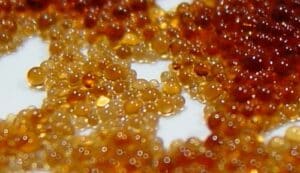
What is Water Softener Resin?
Having trouble with your water softener? Understanding water softener resin is the best way to solve common water softening problems. This guide walks you through water softener resin basics, maintenance requirements, and troubleshooting tips.
Join Our
Newsletter
Get the latest information, and exclusive offers on water softening and purity solutions
